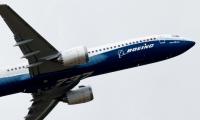Johannesburg: South Africa is seething over Britain’s decision to keep the country on its coronavirus "red list," forcing travellers into a pricey hotel quarantine on their return to the UK.
High-paying foreign tourists are slowly returning to experience South Africa’s wildlife and natural vistas, after being shut off from the rest of the world in 2020. When the Beta variant was found in December, more countries blacklisted South Africa -- a crippling blow as tourism directly accounts for three percent of the nation’s economy. Before the pandemic, tourism provided more than 700,000 jobs.
Most travellers coming from Europe and the US, South Africa’s biggest tourism markets along with the UK, can currently holiday and then self-isolate at home upon return -- a hassle that some are prepared to take.
But the UK has kept South Africa on its red list of high-risk countries, meaning anyone arriving from South Africa is forced to quarantine in a hotel for 10 days, costing more than $2,400 (2,000 euros) per person.
The stratospheric cost rules the country out for most British tourists. Once a colonial power, Britain sent more than 400,000 visitors a year in pre-pandemic times -- more than any country outside of the continent.
Some British nationals such as Claire Alexander have been stuck in South Africa for over a year because of the costly restrictions. "I’ve just spoken to my 91-year papa in Stirling and it’s pretty sore knowing I can’t get home," said the mother of two, whose youngest child has yet to meet "his Scottish clan".
What’s more, Britain won’t recognise vaccines administered anywhere in Africa -- even if the jabs came from Britain. "If you send us vaccines and you say, ‘we don’t recognise those vaccines’, it sends a very challenging message for us," said John Nkengasong, head of the Africa Centres for Disease Control and Prevention (Africa CDC).
Marc Mendelson, an infectious disease expert from Britain who is based at the University of Cape Town, said he was "embarrassed" by his home country’s government. "Misinformation, misrepresentation, outdated & inaccurate science," he tweeted this week.
The British embassy in Pretoria acknowledged that South Africa’s cases are going down, but it said concerns remained "about the continued presence of Beta given its potential ability to circumvent vaccines".
Adrian Puren of the National Institute for Communicable Diseases told AFP that the Beta variant was now "undetectable" and that concerns over its vaccine resistance were "moot". Leading genomics expert Tulio de Oliveira said South Africa has a higher vaccination rate than some non-red listed countries -- including India, where the Delta variant first appeared. "We have a smaller number of infections than the UK," de Oliveira said. "So why this discrimination?"
Daily new cases in South Africa peaked at the end of June at just over 26,000, but are now under 3,000 a day. Britain is seeing 10 times as many new cases a day. Vaccinations, meanwhile, are picking up after a slow start, with around 20 percent of South African adults fully jabbed.
South African tourism groups are lobbying London to remove the red tag as peak season nears, when snow birds leave the northern hemisphere’s winter. Director of luxury holiday booker Discover Africa Group, Andre Van Kets, argued the measures no longer made sense given infection and vaccination rates were "moving in the right direction".
British tourists are enquiring for 2022 and 2023, he said, but often pull out when asked to pay a deposit. "There is no reasonable basis for keeping South Africa on the red list," Foreign Minister Naledi Pandor said this week in a statement touting the country’s "robust vaccination programme and excellent science".
"It’s ridiculous," said Andre Retief of tour operator Safari With Us, which has relied on the UK for 20 to 30 percent of its bookings. "Covid is all over the world now and coming on safari is actually quite safe."
Meanwhile, a Dutch court has ruled that a 12-year-old boy had the right to get a Covid jab to visit his dying grandmother despite his vaccine-sceptic father’s objections. In one of the first cases of its kind in the Netherlands, the unnamed boy in the northern city of Groningen argued that getting the vaccine would reduce his chances of passing on an infection to her.
Children aged 12 to 17 in the Netherlands can choose to be vaccinated but need permission from both parents. In this case, the boy’s parents are divorced and his mother agreed. Judge Bart Tromp of Groningen District Court granted permission for the boy to be vaccinated due to the "interests involved in vaccination, in particular the interest of this minor".
He ordered that the boy be given the shot "shortly" because his interests were more important than any possible appeal by the father’s lawyers. The judge made the ruling on Tuesday but it was not released until Thursday.
Meantime, the EU’s drug watchdog said on Thursday it expects to decide in early October whether to approve boosters of the Pfizer/BioNTech coronavirus vaccine for all people aged over 16.
A decision on further doses of both the Pfizer and Moderna vaccines for at-risk people and the elderly is due at the same time, the European Medicines Agency (EMA) said. Protection against the disease is shown to decrease in the months following the first jabs, the Amsterdam-based regulator’s head of vaccine strategy Marco Cavaleri told a news conference.
In a related development, Russia on Thursday matched its record coronavirus death toll, as the Delta variant and a slowing vaccine drive push up infections. A government tally reported 820 fatalities over the past 24 hours and 21,438 new cases. It previously reported the same death toll in late August.
Russia, the fifth worst-hit country globally by overall number of cases, has seen infections climb since August as vaccinations stall. The capital Moscow -- the epicentre of Russia’s pandemic -- has seen a spike over the past week with officials warning of rising hospital admissions.
Daily cases in the capital rose to 3,445, compared to 1,991 a day earlier. Deputy mayor Anastasia Rakova said Wednesday the increase was due in part to a seasonal spike in respiratory illnesses and contact between people after the summer vacation.
A mother carrying her babies. —UNICEF/FileROME: Some 3,500 migrant children have died or gone missing in the past...
Family members take photographs at the entrance of the University of British Columbia in Vancouver, British Columbia,...
Chinese President Xi Jinping poses for a photo in Berlin during his visit to Germany. — AFP/File KUALA LUMPUR:...
Iran's Supreme Leader Ayatollah Ali Khamenei speaks during a graduation ceremony for armed forces officers at the Imam...
Boeing 737 Max fuselages sit on railcars during an ongoing strike by the company's factory workers in Seattle,...
A 3D-printed miniature model of Donald Trump and the US and Iran flags are seen in this illustration taken January 15,...







